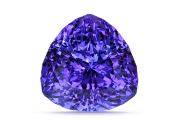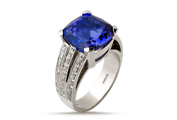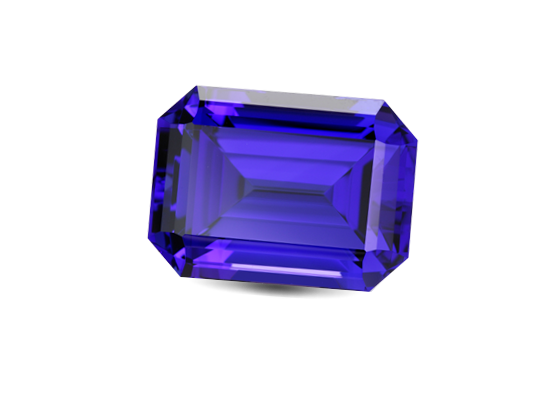TANZANITE Poised between lush blue, vibrant violet, and rich purple, exotic tanzanite is found in only one place on earth, near majestic Mount Kilimanjaro.
ABOUT TANZANITE
Found in just one place on earth, tanzanite is a relatively recent discovery. Tiffany & Co named this blue-violet variety of zoisite in honor of Tanzania, where it was first unearthed in 1967. Because the crystals show different colors depending on the viewing direction, cutters can fashion gems with a range of color from violetish blue to bluish violet depending on how much weight they want to retain from the rough.
BIRTHSTONES & ANNIVERSARIES
Tanzanite is a birthstone for December, along with zircon, turquoise, and blue topaz. Tanzanite is also the gem for a 24th anniversary.
MERELANI
Tanzanite has only one source: the hills of Merelani in northern Tanzania.
1967
Masai tribesman Ali Juuyawatu is credited with finding the first tanzanite crystal.
PLEOCHROIC
Tilt tanzanite and you’ll see three distinct colors in three crystal directions.
FACTS
- Mineral: Zoisite
- Chemistry: Ca2Al3(SiO4)3(OH)
- Color: Violet blue to bluish violet to violet purple
- Refractive Index: 1.691 to 1.700
- Birefringence: 0.008 to 0.013
- Specific Gravity: 3.35
- Mohs Hardness: 6 to 7
QUALITY FACTORS
Assessment of the following characteristics determines tanzanite’s value.
COLOR

Deep saturated violet blue or blue violet are the most valuable tanzanite colors. Paler hues are more commonly found.
CLARITY

Eye-visible inclusions decrease the value of tanzanite, particularly in lighter colored stones.
CUT

Tanzanite is available in a wide range of shapes but cushion and oval cuts are most common.
CARAT WEIGHT

Tanzanite color is less saturated in smaller sizes. Gems must be above five carats in size to have fine color.




